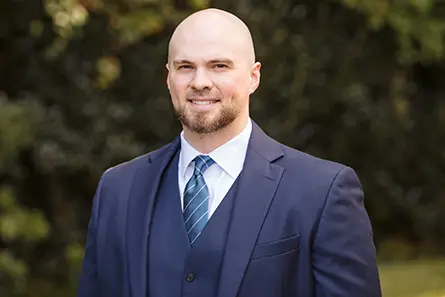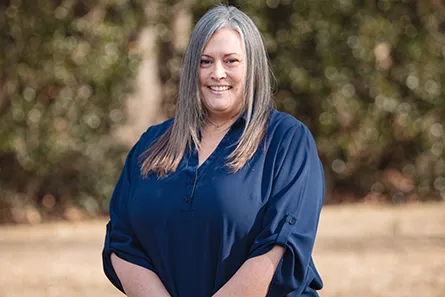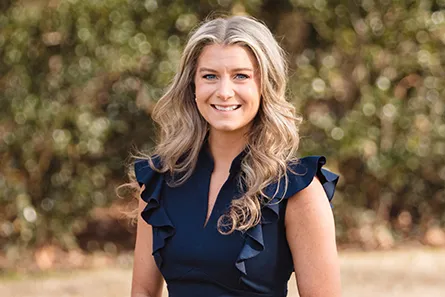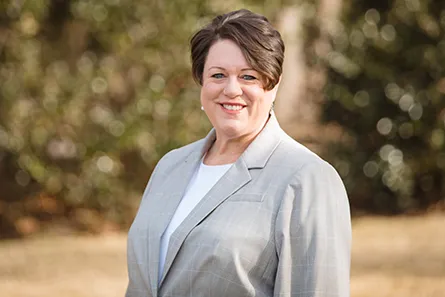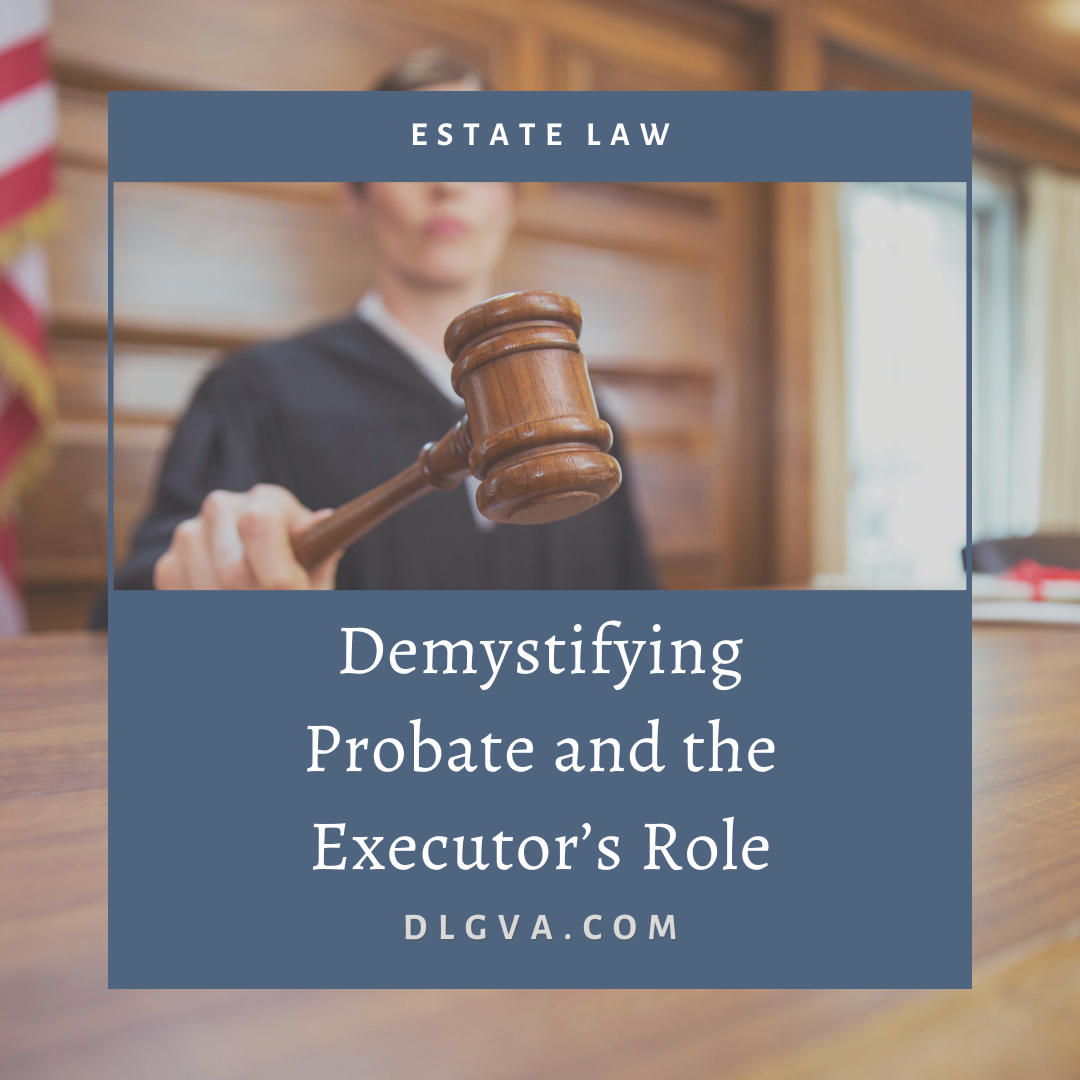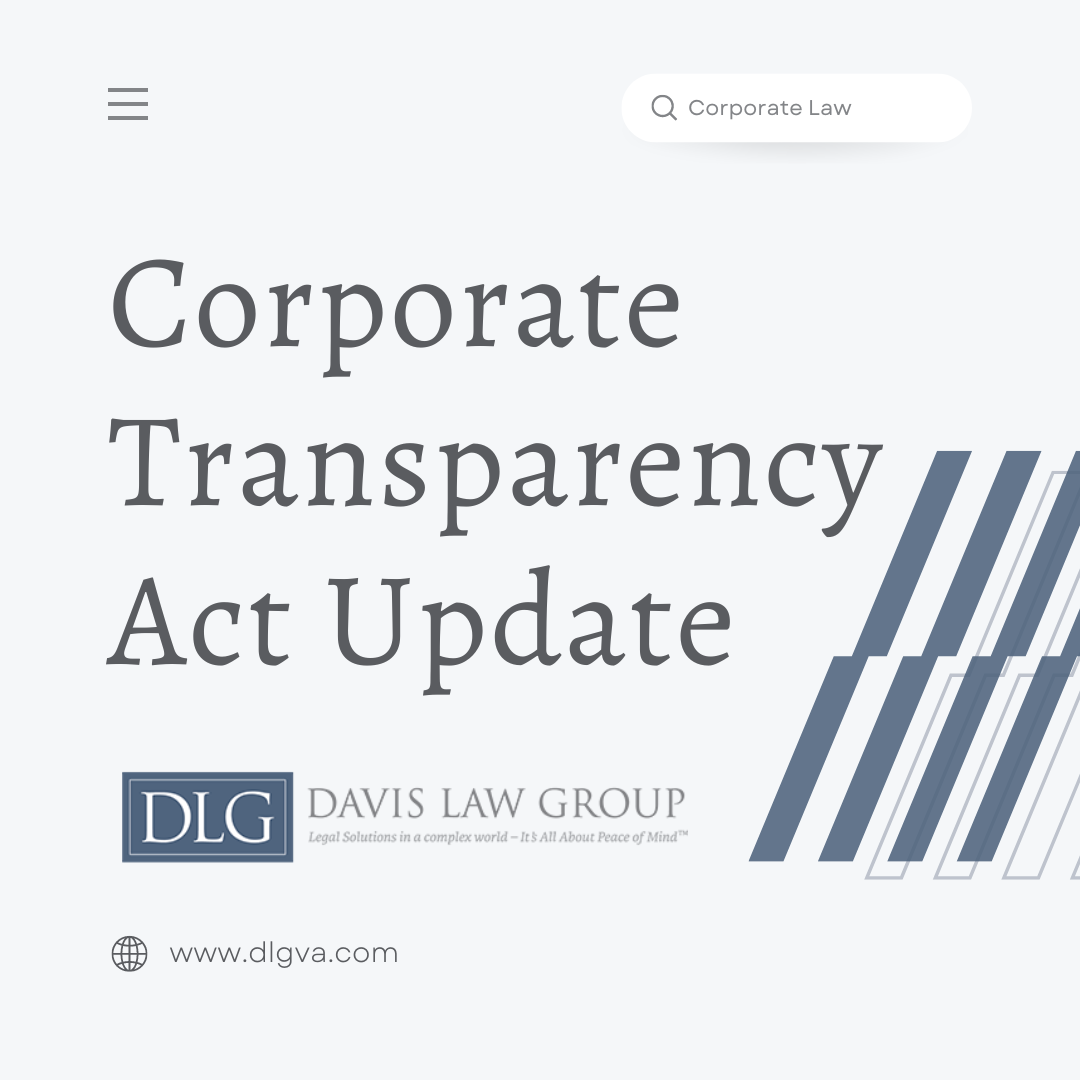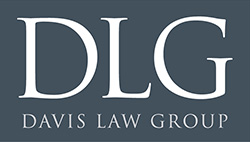Estate & Trust Administration
What should I do if a family member just died?
Losing a loved one is one of the most difficult things anyone ever has to face. In addition, the process of taking care of their estate can be severely overwhelming. Once someone has died, the personal representative will bear the burden of the estate. They will be required to compile and protect all assets and determine debts. The personal representative is required to carry out the estate in accord with the estate plan in place (if applicable) and/or state law.
There is no will, how will the assets be distributed?
In situations where the deceased did not leave a valid will, the estate will be distributed according to state’s intestate laws. Virginia intestate law can be found in Virginia Code § 64.2-200
Who can qualify as the executor/administrator?
The person named as the executor in the will can qualify as the executor of the estate. However, if there is no will, then state law offers an outline of those who can qualify and the requirements related thereto. For Virginia, the information can be found in Virginia Code § 64.2-500
What are probate and non-probate assets?
Probate assets are assets that were owned solely by the decedent at death with no beneficiary designations, excluding real estate which has its own set of rules. Non-probate assets are assets that are in trust, held jointly, or have beneficiary designations.
Am I required to have an attorney to carry out the administration of an estate/trust?
You do not need an attorney; however, it would be in the best interest of the estate and the personal representative to retain an attorney who is familiar with the state’s estate laws. If the estate is not carried out properly, the personal representative may have personal consequences and liability.
Who pays for the attorney in the administration of an estate?
The estate is responsible for the fees and costs associated with the administration, including legal fees.
What is required after I qualify as the personal representative of the estate?
The direction of administration is dependent on the value of the estate, the debts associated with the estate, and instructions of the will/intestacy law. Typically, among the duties required by law for the personal representative, you will be required to give notice to all beneficiaries, file an inventory for the estate, and an accounting.
What if there are more debts than assets of the estate?
When the debts exceed the assets of the estate, we refer to this as an insolvent estate. There is an order of payment given under state law to ensure the assets are applied to the proper debts in order of priority. It is imperative that a personal representative follow the priority of payment; if not, they will hold personal responsibility for the unpaid debt.
Questions? Contact Us

Estate & Trust Planning
Estate Planning is essentially the process of preserving and protecting your assets and property during your lifetime, then providing instructions for them to be passed on to

Corporate and Business Transactions
At Davis Law Group we have a unique perspective in our corporate and business law practice. Most "corporate" law firms focus on serving the business rather than

Probate & Trust Administration
When a close relative or friend dies, there are several important legal and taxation matters to be addressed. Depending on how property and other assets are titled,

Civil Litigation
Representing a client involved in business disputes, contract disputes, including mediation, arbitration, or civil litigation in court, is a big responsibility -- one we don't take lightly.

Church and Non-Profit Organizations
Church and non-profit law requires a special understanding of the issues and challenges that face non-profit and religious institutions. The legal advice that best serves business and

Commercial Real Estate Transactions
At Davis Law Group we understand that the commercial real estate process can be one of the most stressful events our clients will ever experience. Hampton Roads

Family Law & Collaborative Practice
The attorneys at Davis Law Group have extensive experience in representing individuals who find themselves in the middle of broken relationships, and we are effective advocates when

Employment Law
Few relationships impact our daily lives as much as the relationships we have at our workplaces. For most people, it is the place they spend the majority
Douglas W. Davis
Attorney, Managing PartnerSuAnne Hardee Bryant
AttorneyDouglas H. Cook
Attorney, of CounselStephen Haynes
AttorneyJeff Coombs
Attorney, Nonprofit Practice LeaderGrant Hurley
AttorneyChristen Davis
Senior ParalegalLauren Baust
ParalegalRebecca Garnsey
ParalegalMelissa Smith
ParalegalKaren Nootnagel
ComptrollerNicole Capomaggi
Receptionist/Client LiaisonDemystifying Probate and the Executor’s
When creating a last will and testament, one of your most important considerations is who to choose to serve as the executor or administrator
What to Do When a
As poet Robert Burns mused centuries ago, the best-laid plans of mice and men often go awry. Despite your best efforts and thoughtful strategies,
Corporate Transparency Act Update
Under the Corporate Transparency Act (CTA), which took effect January 1, 2024, many business entities including small limited liability companies (LLCs) and partnerships are










